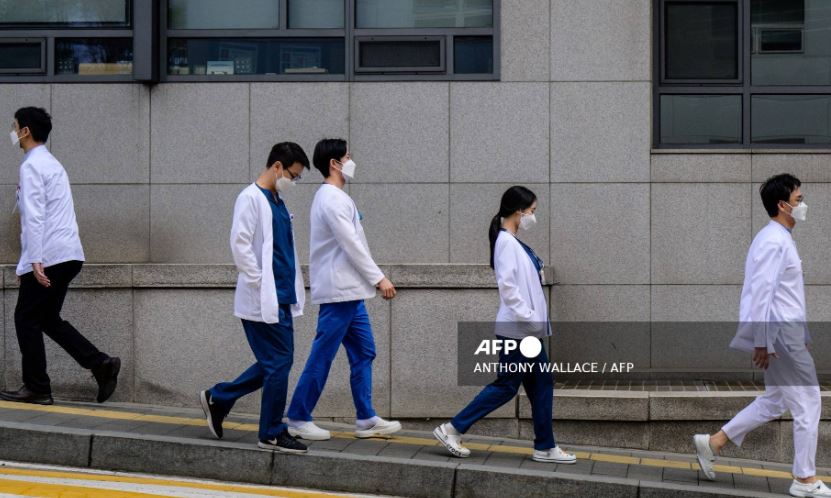South Korea has revoked the medical licenses of two doctors, according to the Korean Medical Association on Tuesday, as a consequence of the month-long strike that has led to healthcare disruption.
Many young doctors ceased work on February 20 to oppose government changes designed to address medical shortages and an aging population, causing hospitals to cancel critical treatments and surgeries, such as chemotherapy and C-sections.
Despite the government's repeated requests for doctors to return to work, the situation has escalated, with senior doctors now considering joining the strike, and no substantial negotiations taking place.
Two officials from the Korean Medical Association, significantly involved in the strike, were notified on Monday that their licenses had been suspended for three months, allegedly due to their role in instigating the strike.
“The two officials, Kim Taek-woo and Park Myung-ha, received the notice yesterday,” spokesperson Lee Seok-young told AFP.
A health ministry spokesperson told AFP that the government would not confirm specific administrative actions taken against individual physicians.
The KMA has previously accused the government of using coercive strategies to pressure doctors back to work, claiming the country is becoming a “totalitarian state”.
According to South Korean law, doctors are prohibited from striking, and the government has asked the police to investigate individuals connected to the strike, including KMA officials.
“The government deeply regrets the current situation where even professors are considering resigning following the footsteps of trainees,” second Vice Health Minister Park Min-soo told reporters on Tuesday.
“Once again, the government is willing to talk to the medical community at any time without conditions,” he said, although Seoul has emphasized that abandoning the reform plan is not an option.
Seoul is aiming to admit 2,000 more students to medical schools annually from next year to address what it describes as one of the lowest doctor-to-population ratios among developed nations.
Doctors express concerns that the reform will diminish service quality and medical education, while proponents of the plan accuse them of trying to protect their salaries and social status.
Last week, the junior doctors stated they had submitted a “letter requesting emergency intervention” from the International Labour Organization, asserting they were being “forced” by the government into unwanted labor. The government has rejected this claim.
While the reform plan has substantial public support, a recent poll by local media found 34 percent of people wished for the government to engage in negotiations to end the standoff.
AFP



